
Hernia Repair Surgery: Your Complete Guide
03 May, 2023
 Danish Ahmad
Danish AhmadA hernia occurs when an internal organ, such as the intestine, protrudes through the surrounding muscle or tissue, causing significant discomfort and pain. If left untreated, this condition can lead to severe complications. The most prevalent approach for addressing hernias is through surgery. In this discourse, we shall discuss the preoperative, intraoperative, and postoperative phases that a patient should expect.
What is Hernia Repair Surgery?
Transform Your Beauty, Boost Your Confidence
Find the right cosmetic procedure for your needs.

We specialize in a wide range of cosmetic procedures

Hernia repair surgery is a medical procedure that involves the correction of a hernia. In the course of the operation, the physician will make an incision in the epidermis and subsequently retract the extruding tissue back into the body cavity. Following this, they will utilize a mesh patch to buttress the musculature or tissue around the herniated region, precluding any future extrusions.
Before the Procedure
Before undergoing hernia repair surgery, there are several things that patients should do to prepare for the procedure. These include:
- Consult with a surgeon: Patients should consult with a surgeon to discuss the procedure and what to expect. During this consultation, the surgeon will evaluate the patient's medical history and perform a physical examination to determine if they are a good candidate for surgery.
- Follow pre-operative instructions: Patients will receive instructions from their surgeon on how to prepare for the surgery. This may include fasting for a certain amount of time before the procedure or taking medications to prevent infection.
- Arrange for transportation: Patients will not be able to drive themselves home after the procedure, so they should arrange for transportation to and from the hospital or surgical center.
- Quit smoking: Smoking can slow down the healing process, so patients should quit smoking at least a few weeks before the procedure.
During the Procedure
During the course of a hernia repair operation, individuals will be rendered unconscious through the administration of general anesthesia, thus precluding the sensation of any physical discomfort during the procedure. Depending on the size and location of the hernia, the procedure itself typically spans a duration of between one and two hours.
Following the creation of a laceration in the skin near the hernia, the surgeon will manually push the extruding tissue back inside the individual's body. Utilizing a mesh patch, the surgeon will subsequently reinforce the muscle or tissue adjacent to the hernia, thereby forestalling the likelihood of further extrusion. The incision will then be sealed via sutures or staples, after which point the individual will be transported to the recovery room.
Most popular procedures in
Laparoscopic Cystect
Upto 80% off
90% Rated
Satisfactory
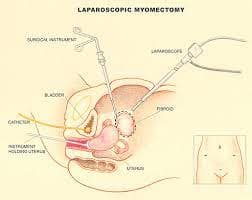
Laparoscopic Myomect
Upto 80% off
90% Rated
Satisfactory
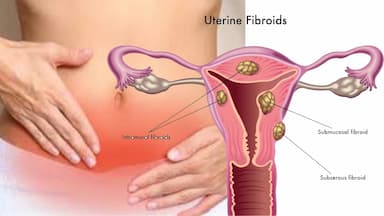
LAVH
Upto 80% off
90% Rated
Satisfactory
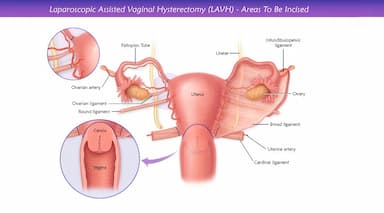
NOTE
Upto 80% off
90% Rated
Satisfactory
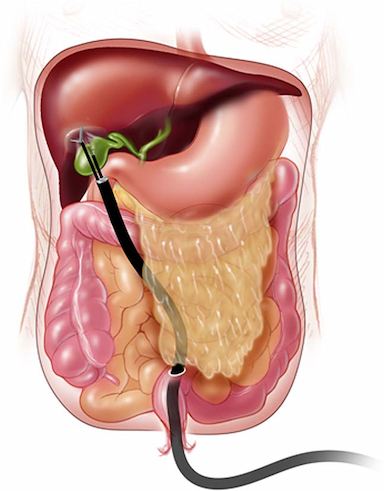
CABG
Upto 80% off
90% Rated
Satisfactory
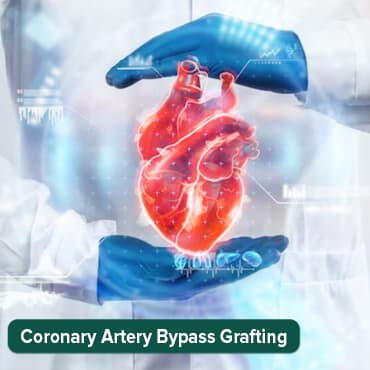
After the Procedure
After hernia repair surgery, patients will spend some time in the recovery room before being moved to a hospital room or sent home. Here are some things that patients can expect after the procedure:
- Pain and discomfort: It is normal to experience some pain and discomfort after the surgery, but this can be managed with pain medications prescribed by the surgeon.
- Limited activity: Patients should avoid any strenuous activity, such as heavy lifting or exercise, for several weeks after the procedure. The surgeon will provide instructions on when it is safe to resume normal activities.
- Diet: Patients may be advised to follow a special diet for a few days after the surgery. This may include a liquid diet or soft foods that are easy to digest.
- Follow-up appointments: Patients will need to attend follow-up appointments with their surgeon to monitor their progress and ensure that the incision is healing properly.
Complications
Like any surgery, there are risks associated with hernia repair surgery. Some potential complications include:
- Infection: Infection can occur at the site of the incision, and patients may experience fever, redness, and swelling.
- Bleeding: Some patients may experience bleeding during or after the surgery, which may require further treatment.
- Nerve damage: The surgery can damage nearby nerves, leading to numbness, weakness, or other nerve-related symptoms.
- Recurrence: There is a risk that the hernia may recur, although the use of mesh during the procedure can significantly reduce this risk.
It is important for patients to discuss these risks with their surgeon before undergoing the procedure and to follow all post-operative instructions to minimize the risk of complications.
Types of Hernia Repair Surgery
There are several types of hernia repair surgery, and the surgeon will choose the best option based on the type and severity of the hernia. The two most common types of hernia repair surgery are open surgery and laparoscopic surgery.
- Open Surgery: Open surgery is the traditional method of hernia repair and involves making a single large incision in the skin near the hernia. This allows the surgeon to directly access and repair the hernia. Open surgery is usually recommended for larger hernias or in cases where there are complications.
- Laparoscopic Surgery: Laparoscopic surgery is a minimally invasive procedure that involves making several small incisions in the skin and using a tiny camera to guide the surgical instruments. This type of surgery is less invasive than open surgery and typically results in less pain and scarring.
Recovery Time
The recovery time after hernia repair surgery depends on the type and severity of the hernia and the type of surgery performed. In general, patients can expect to take a few days to a few weeks off from work or other activities to allow the incision to heal.
During the recovery period, patients should avoid any strenuous activity or heavy lifting, as this can put pressure on the incision and delay the healing process. The surgeon will provide instructions on when it is safe to resume normal activities.
It is also important for patients to closely monitor the incision for any signs of infection, such as redness, swelling, or discharge. If any of these symptoms are present, patients should contact their surgeon immediately.
Cost of Hernia Repair Surgery
The cost of hernia repair surgery can vary depending on several factors, including the type of surgery performed, the location of the surgery, and the patient's insurance coverage. In general, open surgery is more expensive than laparoscopic surgery due to the longer recovery time and higher risk of complications.
Patients should check with their insurance provider to determine the extent of their coverage for hernia repair surgery. In some cases, the cost of the surgery may be partially or fully covered by insurance, but this will vary depending on the patient's specific insurance plan.
Conclusion
Hernia repair surgery stands as a conventional procedure that effectively manages hernias and prevents their recurrence. Prior to undergoing the surgery, patients ought to engage in consultation with their surgeon to discuss the operation, adhere to pre-operative instructions, and plan for transportation to and from the hospital or surgical center.
Throughout the procedure, patients are subject to general anesthesia, whereby the surgeon conducts an incision close to the hernia to expel the bulging tissue back into the body and strengthen the muscle or tissue surrounding it.
After the operation, patients should anticipate a degree of pain and discomfort, restrict activity, comply with a specialized diet, and attend routine check-ups with their surgeon. Although complications like bleeding or infection are likely, adhering to post-operative directives and promptly seeking medical attention to resolve any issues can minimize the likelihood of complications.
Recovery duration is variable, but patients should aim to abstain from work or school for approximately 1-2 weeks, while refraining from strenuous activities for no less than 4-6 weeks following the surgery. By adhering to these guidelines and prioritizing self-care, patients can ensure a successful recovery and minimize the risk of hernia recurrence or additional complications.
Wellness Treatment
Give yourself the time to relax
Lowest Prices Guaranteed!

Lowest Prices Guaranteed!



